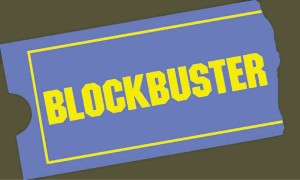
It goes against the concept of a compelling value proposition, whereby pain points of target customers are identified and addressed.
Satisfaction of needs and wants should be prioritized to continue to be relevant as a brand. The emotional connection is often lost when buyers think they are being hostaged.
In my recent trip to Tokyo, I had such unfortunate incidents in two 5-star hotels in the Odaiba area.
In one hotel where I booked 12 rooms for my incentive group, we found out that bottled water was only available on the first night, which caught us all unprepared when we arrived on the second night quite late after a long day.
This was quite a shock as all 5-star hotels we’ve been to provided bottled water daily, and at the very minimum, this is part of our expectations for a premium priced hotel (or any hotel for that matter).
We had to negotiate with the front desk (housekeeping was not answering) that our team was tired and most had to take medicines before they conceded to giving us bottled water, which we demanded every day for the rest of our stay.
I had to ask for my provision again the next night despite having been assured they were already being provided daily.
Clearly, one of the revenue models of the hotel is to make guests buy expensive bottled water and other drinks in the room’s mini bar.
Certainly, they must know guests from different cultures do not drink directly from the tap.
The revenue model may work temporarily, but customers might feel buyer’s remorse for non-disclosure of this drinking water policy during booking or upon check-in (the hotel won’t because they know this will turn off potential customers).
I also often wonder how pricing at the mini bar works as high price does not connote high volume. In fact, it is a deterrent.
On another day, at another 5-star hotel in Odaiba, my group were told to pay in cash after having buffet.
They would not accept an international Visa or Mastercard from anyone in our group, and we felt extremely discriminated upon as they accepted cards from local guests.
And to think there was even prior notice and reservation for our group by JTB, a Japanese travel agency in the Philippines with an office in Tokyo.
Bottled water is not just bottled water.
An in-depth understanding of consumer needs and wants will help financially-oriented businesses to optimize revenues in addition to higher customer retention.
Needs are basic and non-motivating. Needs just have to be satisfied.
Remove a thing that satisfies a mere need and it becomes a dissatisfier!
Just think about the chicken gravy that KFC tried to charge in the past and Filipinos immediately protested. KFC had to abandon plans and treat it as part and parcel of the value proposition for the KFC chicken experience.
We have also seen friends posting their annoyances on social media about how the internet service they availed of 24/7 is not commensurate to what they are paying.
Credit card policies are another example: high penalties plus high interest rates are being imposed even on small amounts of delayed payment, which are sometimes even caused by delayed billing. Negotiating for the removal of these charges, even if not your fault, requires time, effort, and lots of patience to dial and listen to tons of advertising forced on you while waiting for a customer service representative.
I learned about this when I did not get my bill on time and saw how card companies make money. I had to tell the representative to look at my payment pattern (always on time and earlier than due dates) as evidence. In the first place, I did not ask for their credit card, now I have to endure their inefficiencies and those hard-to-dial numbers.
Telcos are also profiting from dissatisfaction when, despite erratic service, they begin to charge P50 for printed billing. In the past, telcos were even told by the government to remove the expiration dates on prepaid load as this was de facto money. Consumers complained the firms held them hostage or forced them to use either text or call even when there was no need to do so.
Blockbuster was once the largest and most influential video rental chain in the United States. One of the key complaints of its customers was the late fees imposed. The firm abolished it at one point, but the millions it made annually were too hard to ignore so the penalty was restored. A few months later, Blockbuster filed for bankruptcy.
Customers did not sympathize with the reversal of fortune as Blockbuster’s business model was based on inventory turnover. Hence, to make customers return their DVDs promptly, they imposed a penalty much like how school libraries imposed a fine when books were returned after the due date.
The firm’s fortune turned for the worst as industry challenger turned leader, Netflix, created a subscription model where the penalty was even removed.
Marketing history warns us against profiting from customer dissatisfaction as buyer’s remorse creates bad memories and is dangerous to business. —CONTRIBUTED
Josiah Go is chair of Mansmith and Fielders Inc. Visit his blog for interviews with thoughtleaders via www.josiahgo.com

